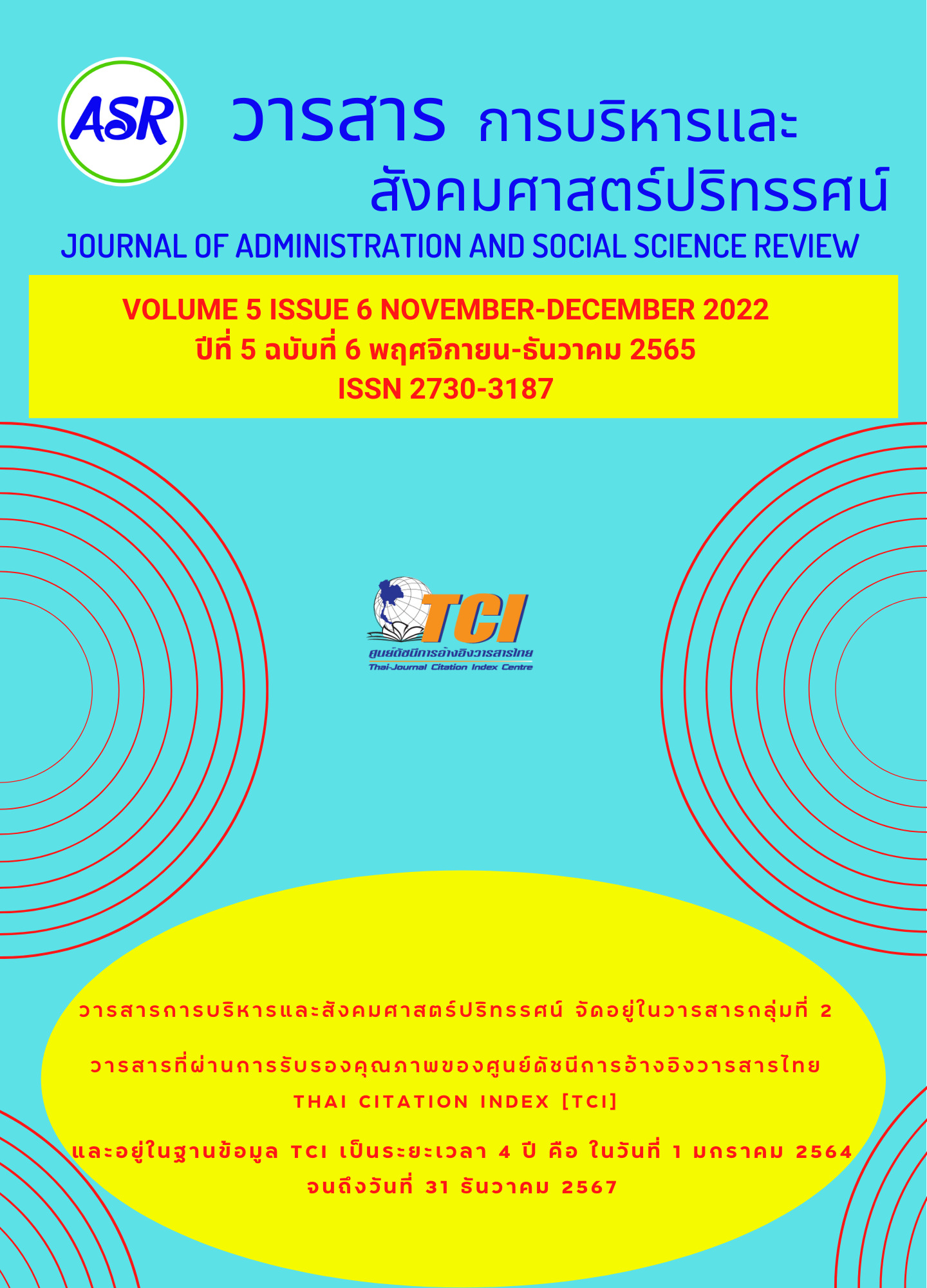School Administration Guidelines using the Community as a case study base Ban Huai Chalong School Uttaradit Primary Educational Service Area Office 1
Keywords:
administration, educational institute, community-basedAbstract
The objectives of this study were: 1) to study the problem conditions, and 2) to find school administration guidelines using the community as a case study base at Ban Huai Chalong school under Uttaradit Primary Educational Service Area Office 1. According to the objective number one, there was a sample group of fifty-eight people in total, including six members of the Subdistrict Administrative Organization Council, one Subdistrict Headman, two Village Headmen, four Assistant Village Headmen, ten Village Committee, five Public Health Officers, ten Village Health Volunteers, and twenty villagers specifically chosen. According to the objective number two, there was a sample group of ten people in total, including five Ban Huai Chalong school teachers and five school committee members. The research instruments consisted of a questionnaire and group discussion. Averaging, standard deviation, and content analysis were used to analyze the data.
According to the research, the problem conditions of community-based school administration were overall at a high level: they were ranked orderly as followed. They had a culture of knowledge seeking, problem-solving learning, and quality development by the standards of educational institute and communities. Also, they were using community resources: integrating into the educational institute resource-based communities integrated into the educational administration. Lastly, they had the horizontal management structures of cooperation.
The school administration guidelines, using the community as a case study base, were: 1) community leaders for communication facilitation; 2) career skills integrated in the curriculum collaborations with community experts and learning resources based on the project plan; and 3) rules decided by a committee for the public relations and prevention of undesirable behaviors.



